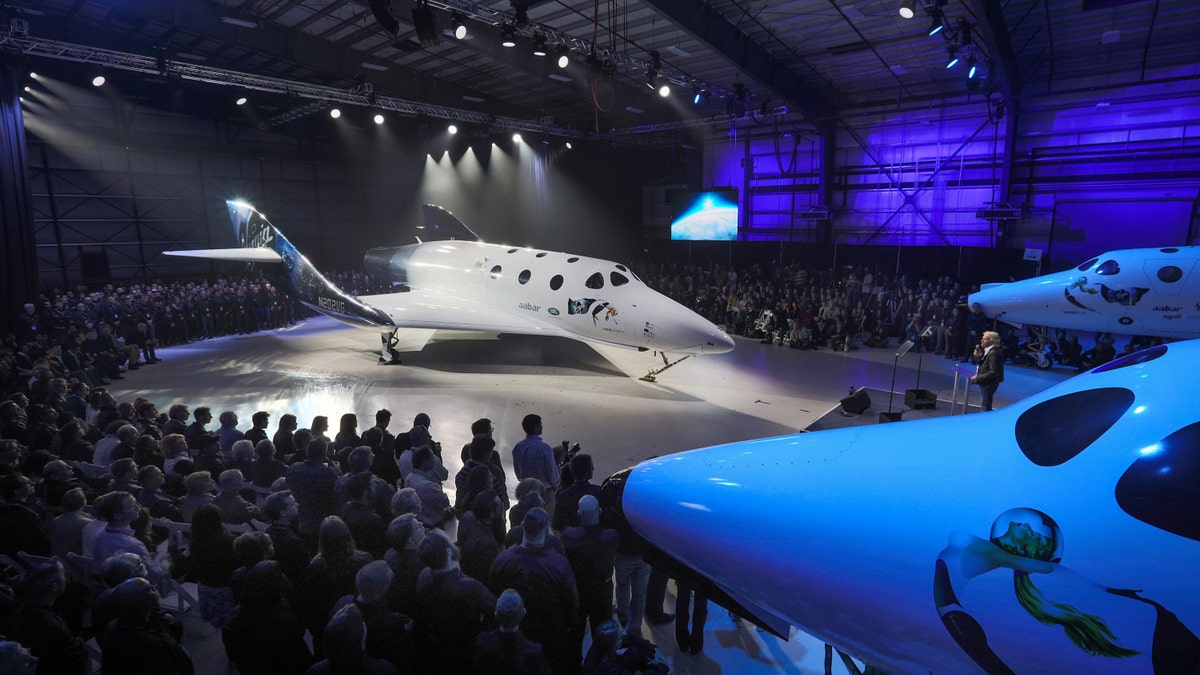
Virgin Spaceship Unity is unveiled in Mojave, California, Friday Feb. 19, 2016. ((c) 2016 Mark Greenberg/Virgin Galactic)
Virgin Galactic unveiled the latest version of its SpaceShipTwo spaceplane Friday.
The private space tourism company revealed the plane during an event at the Mojave Air and Spaceport in California. Professor Stephen Hawking named the spaceplane Virgin Spaceship (VSS) Unity in a recorded speech.
Related: Google this: Israeli scientists eye $20M moon race prize
"Together, we can make space accessible in a way that has only been dreamt of before now, and by doing so can bring positive change to life on Earth," said Virgin Group Founder Sir Richard Branson. "Our beautiful new spaceship, VSS Unity, is the embodiment of that goal and will provide us with an unprecedented body of experience which will in turn lay the foundations for Virgin Galactic's future."
Ladies and gentlemen, please meet the new #SpaceShipTwo. More photos and info coming soon. pic.twitter.com/cNCTDj3cHv
— Virgin Galactic (@virgingalactic) February 19, 2016
The spaceplane is designed to take a crew of two pilots and six passengers to space.
Virgin Galactic's spaceline fleet now consists of VSS Unity and two carrier aircraft - WhiteKnightTwo VMS Eve for transporting humans to space and the 747-400 Cosmic Girl for the company's LauncherOne satellite launch service.
Related: Virgin Galactic will launch satellites from a Boeing 747
The company will now perform systems verification on the new spaceplane, followed by ground and flight tests in Mojave and its future home in Spaceport America, N.M. In a press release, Virgin Galactic said that it has already started work on the next SpaceShipTwo.
VSS Unity replaces the first SpaceShipTwo, which broke apart on Oct. 31, 2014, during its fourth rocket-powered flight. Wreckage fell to the Mojave Desert.
The investigation into the mid-flight break up found that co-pilot Michael Alsbury prematurely unlocked the so-called feathering system that is intended to slow and stabilize the craft as it re-enters the atmosphere, according to the Associated Press. Alsbury was killed, but pilot Peter Siebold, although seriously injured, parachuted to safety.
Related: Virgin Galactic’s SpaceShipTwo crashes, one pilot killed
A National Transportation Safety Board investigation found that Scaled Composites, a company that was developing SpaceShipTwo with Virgin Galactic and was responsible for its test program, should have had systems to compensate for human error, the AP reported.








































